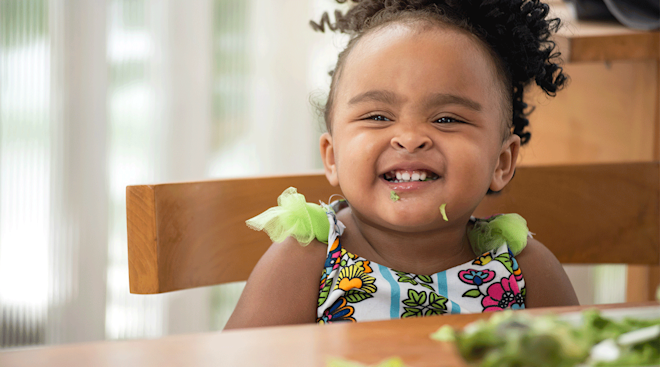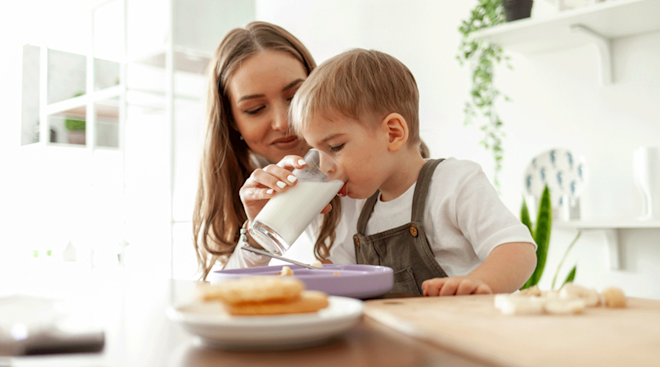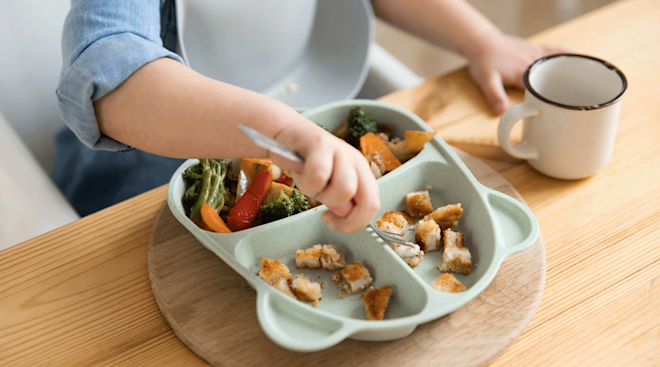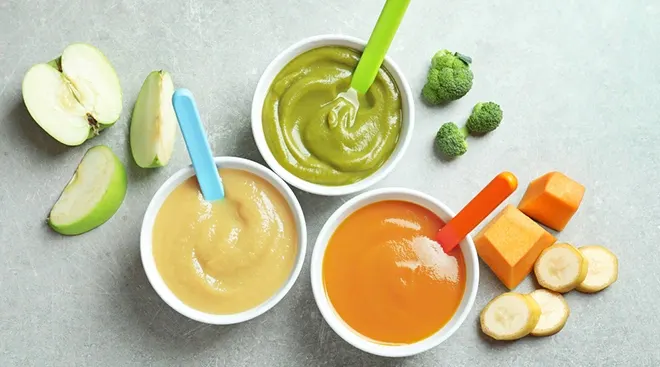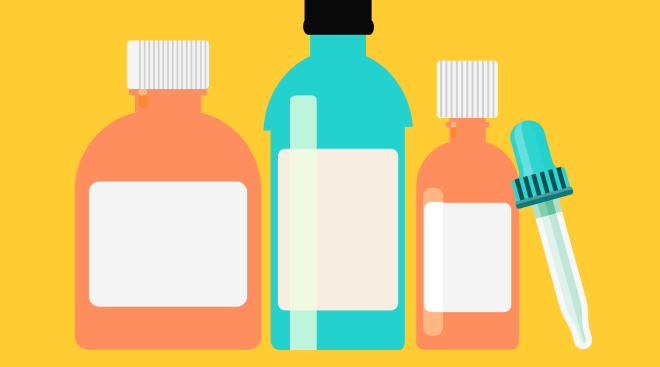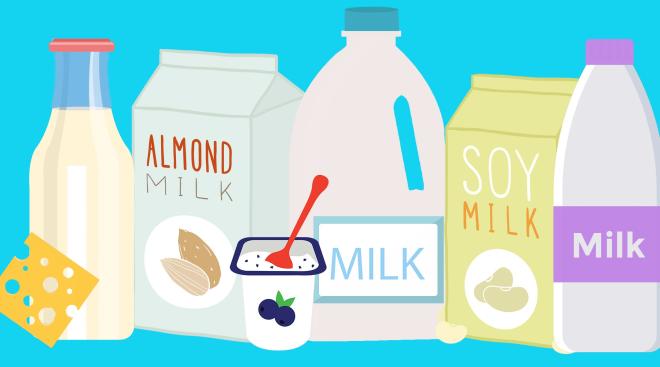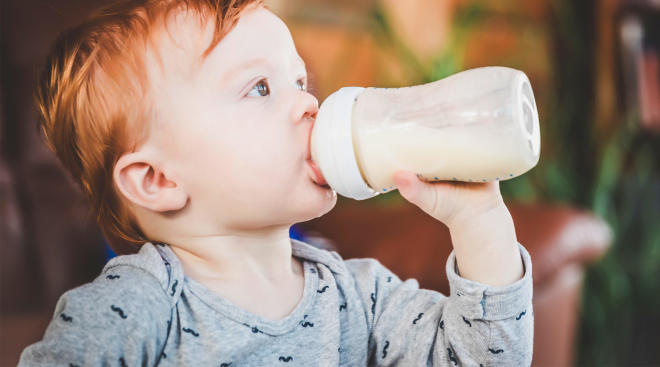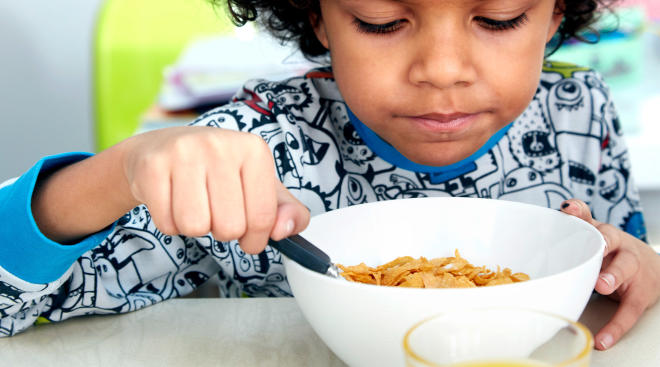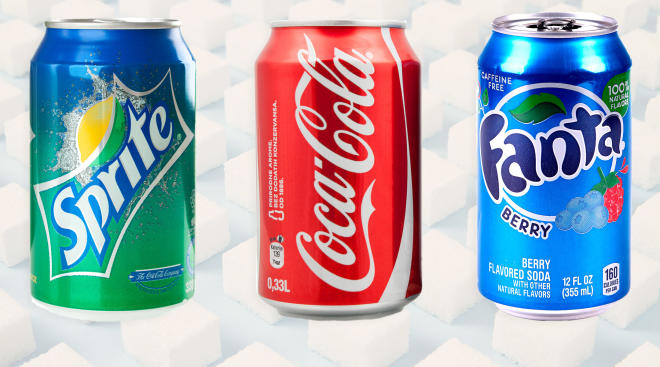Feeding Baby a Fish and Veggie-Rich Diet May Decrease IBD Risk
As your baby transitions from bottle to solid foods, the real adventure begins. Discovering your toddler’s culinary preferences can be a constantly evolving and sometimes frustrating journey. But before you resign yourself to a diet of strictly chicken nuggets and mac and cheese, consider this.
A new study published in the scientific journal Gut suggests that baby’s diet between 1-3 years old could make a significant impact on their long-term gut health. Researchers from Sweden examined the dietary habits of children at 12-18 months and 30-36 months, then followed up 15-21 years later to determine how early diet quality correlated with the development of inflammatory bowel diseases (IBDs) such as Crohn’s and ulcerative colitis.
Diet quality was assessed by measuring the consumption of meat, fish, fruits, vegetables, dairy, sweets, snacks, and beverages, using a modified version of the Healthy Eating Index (HEI) tailored for children. A higher diet quality, characterized by increased intake of vegetables, fruits, and fish, and reduced consumption of meat, sweets, snacks, and beverages, was reflected in a higher HEI score. The total score was divided into thirds to indicate low, medium, or high-quality diets.
The findings revealed that children with medium or high-quality diets had a decreased risk of developing IBD. Specifically, those with medium to high-quality diets at age 1 exhibited an overall 25 percent lower risk of IBD compared to those with low-quality diets at that age.
Among babies with high-quality diets, high fish intake at the age of 1 was associated with a lower overall risk compared with its opposite and a 54 percent lower risk of ulcerative colitis in particular. More veggies at 1 year old were also associated with a reduced risk of IBD. On the other side of the coin the study showed that the consumption of sugar-sweetened drinks was associated with a 42 percent heightened risk. By the age of 3, only high fish intake was associated with reduced IBD risk and ulcerative colitis in particular.
Scientists point out that the study is not able to establish direct cause and effect, but the correlation between baby’s early diet and IBD development offers a pretty convincing reason to keep trying to push veggies and fish into baby’s diet.
If you are struggling with a picky eater, check out these tips to encourage baby explore new foods.
Please note: The Bump and the materials and information it contains are not intended to, and do not constitute, medical or other health advice or diagnosis and should not be used as such. You should always consult with a qualified physician or health professional about your specific circumstances.
Navigate forward to interact with the calendar and select a date. Press the question mark key to get the keyboard shortcuts for changing dates.


































